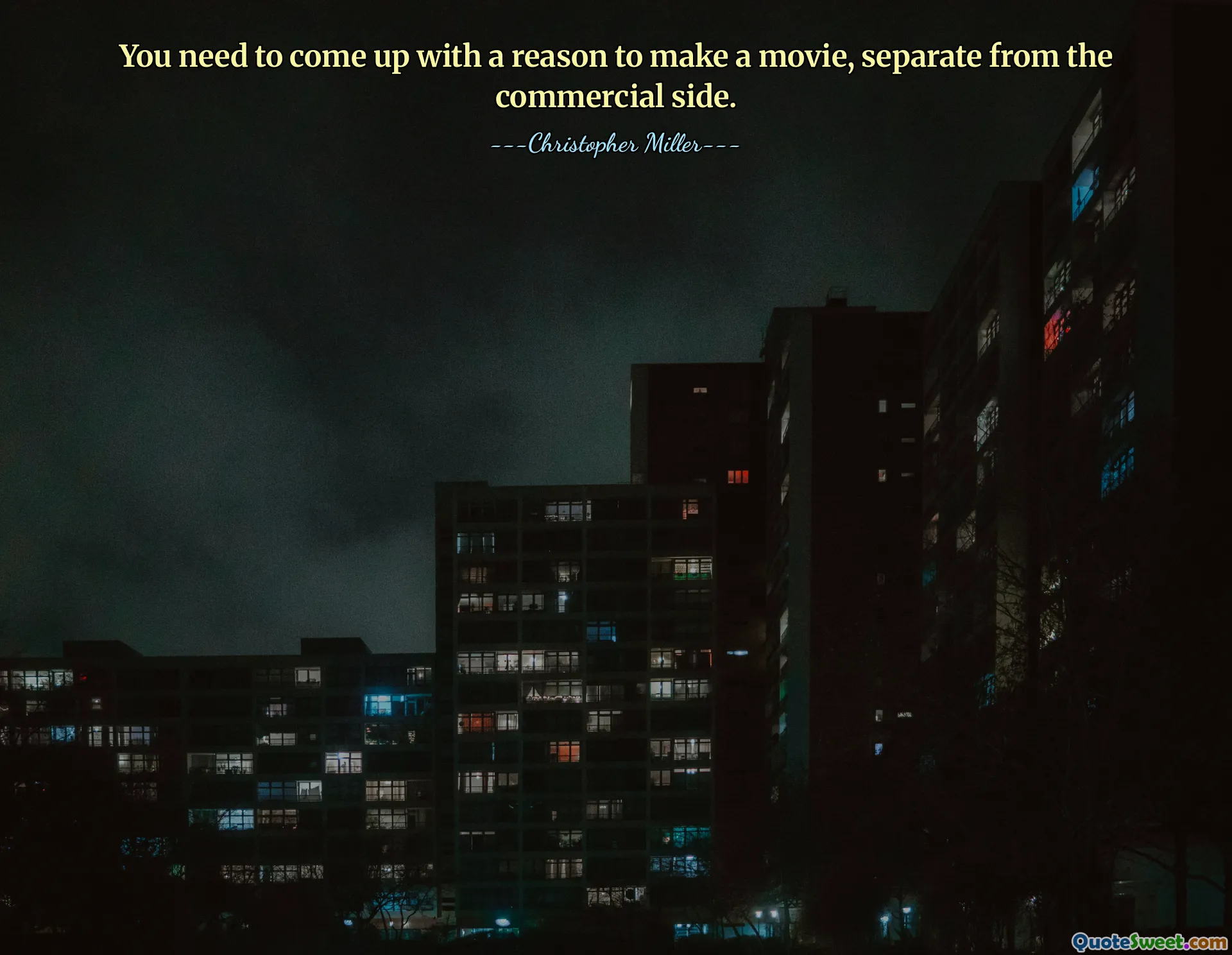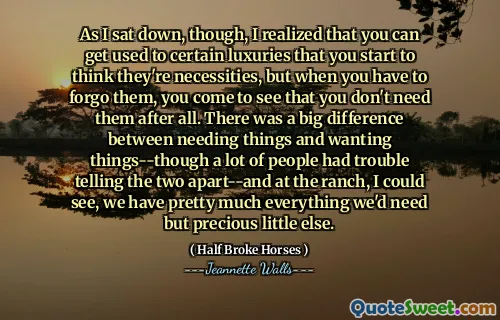
You need to come up with a reason to make a movie, separate from the commercial side.
This quote underscores the importance of having intrinsic motivations and creative vision as the driving forces behind filmmaking. Often, commercial considerations—such as marketability, profitability, and audience demand—can overshadow the genuine artistic or personal reasons for creating a film. When filmmakers focus solely on commercial success, there's a risk of diluting authentic storytelling, resulting in products that lack depth or originality. By encouraging creators to find a personal or meaningful reason to tell their stories, the quote suggests that movies can transcend mere entertainment and become meaningful art. Such intrinsic motivation fosters innovation, passion, and originality, which are essential for creating impactful cinema. It prompts filmmakers to look inward, to ask themselves what compels them to tell a story beyond the lure of profit or audience appeal. This perspective can lead to more courageous and honest expressions, often resonating more deeply with viewers who sense authenticity. The challenge, however, lies in balancing artistic integrity with commercial viability—yet, the core message remains that the genuine purpose behind a film should not be dictated solely by financial considerations. Instead, compelling stories often originate from a true desire to explore human experiences, challenge perceptions, or contribute something unique to the cultural landscape. Ultimately, passionate filmmaking rooted in sincere intent can foster more meaningful connections with audiences and stand the test of time more effectively than films driven only by commercial motives.










